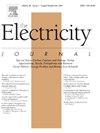谁该负责?中国智能网联汽车数据安全风险的责任归属与公众应对
IF 2.2
Q1 Social Sciences
引用次数: 0
摘要
随着全球车联网(IoV)产业的不断扩大,智能网联汽车的数据安全、软件漏洞、通信劫持和隐私泄露等相关风险也日益严峻。这一问题已成为世界各国政府迫切关注的问题。了解公众对这些风险的责任归属、影响这些归属的因素以及这些归属如何影响公众的应对行为,对于营造有效的风险沟通环境和促进智能网联汽车行业的健康发展至关重要。我们的研究以对风险的态度为基础,将公众应对行为分为防御行为和积极应对行为。我们在中国主要的智能网联汽车应用城市开展调查和实证分析,并在不同行政级别的城市之间进行异质性分析,以探讨公众对这些风险的责任归属和应对方式。来自 523 名受访者的数据表明,虽然两种应对行为都受到风险认知和信息来源的影响,但只有积极应对行为受到责任归属的影响。责任归属本身受风险认知、个人职业和信息来源的影响。此外,不同行政级别的城市在责任归属、信息来源和应对行为之间的关系也略有不同。本文章由计算机程序翻译,如有差异,请以英文原文为准。
Who should be responsible? Responsibility attribution and public response to data security risks in China’s intelligent connected vehicles
As the global Internet of Vehicles (IoV) industry continues to expand, the associated risks, such as data security, software vulnerabilities, communication hijacking, and privacy breaches in intelligent connected vehicles, have become increasingly severe. This issue has emerged as an urgent concern for governments worldwide. Understanding the public's attribution of responsibility for these risks, the factors influencing such attributions, and how these attributions affect public response behaviors is crucial for creating an effective risk communication environment and promoting the healthy development of the IoV industry. Our study categorizes public response behaviors into defensive and positive coping behaviors on the basis of attitudes toward risk. We conduct surveys within and empirical analyses of major Chinese cities where intelligent connected vehicles are predominantly used and perform a heterogeneity analysis among cities of different administrative levels to explore how the public attributes responsibility and reacts to these risks. Data from 523 respondents indicate that while both types of response behaviors are influenced by risk perception and sources of information, only positive coping behaviors are affected by the attribution of responsibility. Responsibility attribution itself is influenced by risk perception, an individual's occupation, and information sources. Additionally, cities of different administrative levels show slight variations in the relationships among responsibility attribution, information sources, and response behaviors.
求助全文
通过发布文献求助,成功后即可免费获取论文全文。
去求助
来源期刊

Electricity Journal
Business, Management and Accounting-Business and International Management
CiteScore
5.80
自引率
0.00%
发文量
95
审稿时长
31 days
期刊介绍:
The Electricity Journal is the leading journal in electric power policy. The journal deals primarily with fuel diversity and the energy mix needed for optimal energy market performance, and therefore covers the full spectrum of energy, from coal, nuclear, natural gas and oil, to renewable energy sources including hydro, solar, geothermal and wind power. Recently, the journal has been publishing in emerging areas including energy storage, microgrid strategies, dynamic pricing, cyber security, climate change, cap and trade, distributed generation, net metering, transmission and generation market dynamics. The Electricity Journal aims to bring together the most thoughtful and influential thinkers globally from across industry, practitioners, government, policymakers and academia. The Editorial Advisory Board is comprised of electric industry thought leaders who have served as regulators, consultants, litigators, and market advocates. Their collective experience helps ensure that the most relevant and thought-provoking issues are presented to our readers, and helps navigate the emerging shape and design of the electricity/energy industry.
 求助内容:
求助内容: 应助结果提醒方式:
应助结果提醒方式:


